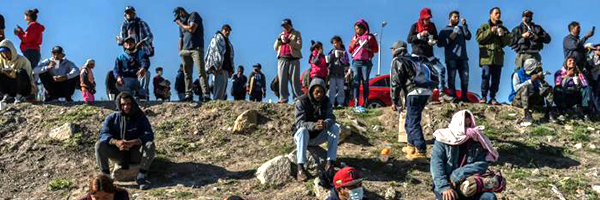A business flourishes in the United States. Thousands of migrants are becoming part of a new economy of exploitation. Deceived by cunning sponsors, they travel in search of a dream, but their hopes end in nightmares.
In this lucrative industry of evil, they rise daily to go to work in the harshest conditions, condemned to an extreme existence.
More than 250,000 unaccompanied minors arrived in the country in the last two years, as recently revealed by The New York Times. The children, the main victims of traffickers, work in some of the country’s toughest trades, circumventing existing labor laws. “It’s getting to be a business for some of these sponsors,” said Annette Passalacqua, a social worker in Central Florida.
They work in slaughterhouses in Delaware, Mississippi and North Carolina, saw planks of lumber in South Dakota, work for Hyundai and Kia suppliers, drive milking machines in Vermont, put on roofs in Florida, drive 35-ton bulldozers, 13-year-old girls wash sheets in Virginia hotels.
The new “serfs” are persuaded by people, companies and supposed law firms, through social networks. When they arrive in the promised paradise, the reality is quite different; they then find that they owe thousands of dollars, that they have to find a place to live, and the debt grows with each passing minute and with each service they receive.
The underground market for migrants seeking U.S. sponsors has grown since President Joe Biden’s administration announced that Washington would accept a limited number of applicants from several countries in the region.
The program approved by the White House, which allows legal entry into the country through a sponsor, has generated an underground online market, very similar to the one operating in Central America.
According to a report by the AP news agency, bidders demand up to US$10,000 for a financial sponsor.
Attorney Taylor Levy, who worked for a long time on the border near El Paso, Texas, stated that what worries her “are the risks in terms of being trafficked and exploited.”
While Kennji Kizuka, a lawyer and director of Asylum Policy for the non-governmental organization International Rescue Committee, which resettles newcomers to the United States, said that “it looks like some people are just going to take people’s money and people won’t get anything in return,” the Los Angeles Times reported.
Except for the migrants, everyone wins: the transnationals and the market that hires “black” labor, that is, without a contract, and those unscrupolous people who make their harvest by trafficking with the siren songs.
Business is business, although there are formal differences between the program approved for Cuba and the “business” of the human traffickers operating to Central America. Let us remember that anything goes in the “American dream.”

